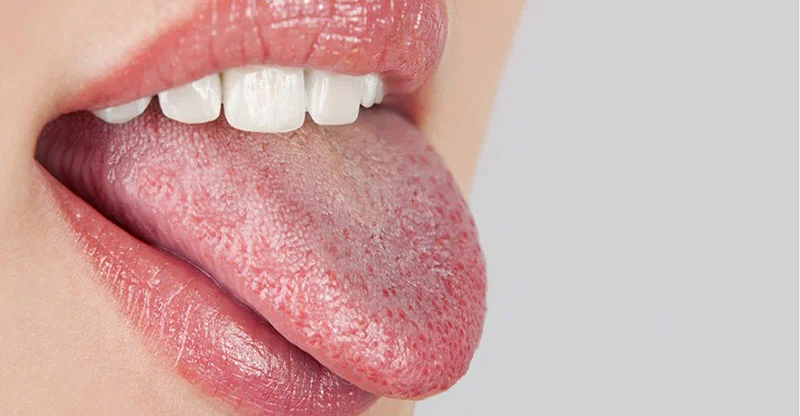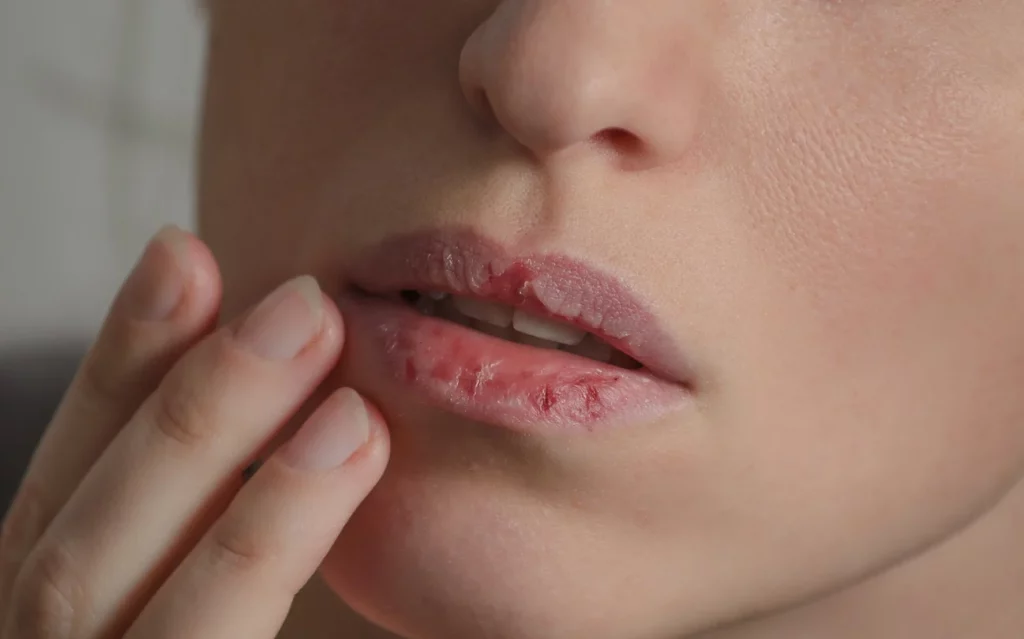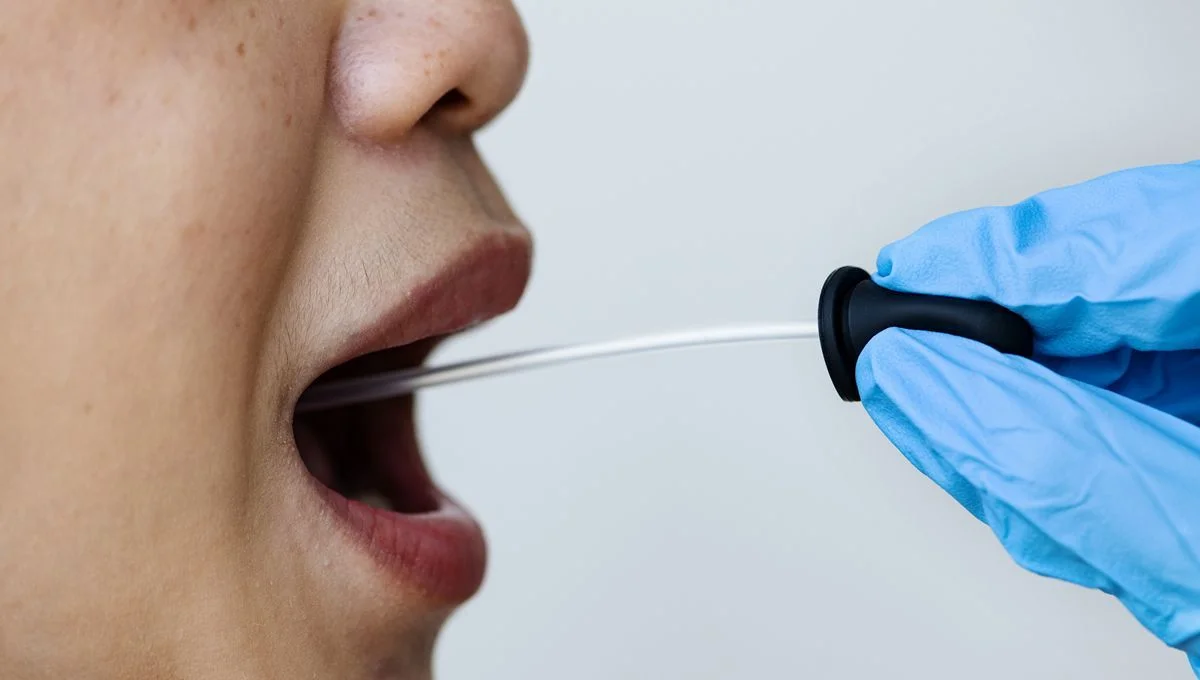Last Updated on: 12th December 2025, 06:01 am
Spironolactone and Dry Mouth
Spironolactone belongs to a group of medications called diuretics. These medications help eliminate water and sodium through the kidneys via urine. These components are eliminated from the blood, decreasing the amount of fluid that flows in the veins and arteries, leading to a reduction in blood pressure. They are used in combination with other medications to manage hypertension.
There are three types of diuretics; their classification depends upon the site of action within the kidneys; we can find thiazides, loop diuretics, and potassium-sparing diuretics.
Spironolactone is part of the potassium-sparing family and is indicated in patients with low potassium levels, heart failure, and edema (fluid retention) as a result of some health conditions to treat high blood pressure. By helping to eliminate unnecessary sodium and water from the body, it reduces the loss of potassium and improves blood pressure levels.
On some occasions, it is indicated for other types of treatments such as precocious puberty and a loss of muscle coordination, among others.
Medical Perspective
Spironolactone is a valuable medication in the treatment of hypertension and other disorders related to fluid retention. It works by blocking the action of aldosterone, a hormone that regulates sodium and potassium levels in the body. However, one of the common side effects of spironolactone is xerostomia or dry mouth.
A dry mouth can be uncomfortable and increase the risk of tooth decay and other oral problems. Patients taking spironolactone should be aware of this and take steps to mitigate it, such as drinking water regularly, avoiding tobacco and alcohol, and maintaining good oral hygiene. Healthcare professionals must inform patients about these side effects and provide guidelines for their management.
The most common and healthy recommendation is using the proper toothbrush, mouthwash and toothpaste for better oral hygiene. Check out some of the best for your health here!
Dental Perspective
From a dental perspective, the relationship between spironolactone and dry mouth is of great importance. The decrease in saliva production, caused by spironolactone, can lead to significant oral problems, such as tooth decay and oral thrush. Dentists must be informed about the medications their patients are taking and pay special attention to those that can cause xerostomia.
Patients who experience dry mouth should be counseled on how to maintain good oral hygiene, including the use of alcohol-free mouthwashes, and sugar-free gum, and the importance of visiting the dentist regularly. Collaboration between doctors and dentists will ensure the oral health of patients taking spironolactone or other medications with similar side effects.
Take a look to some alcohol-free mouthwashes that could hep you by clicking here.
What is Blood Pressure?
It is understood as the measurement of the force exerted against the walls of the arteries, while the heart pumps blood to the body. It affects many organs when it is altered and is not controlled, since it can cause other issues such as heart and cerebrovascular diseases., and kidney and eye problems, among other health conditions.
Blood pressure is measured in two stages: systole and diastole, carried out by the heart muscle. A reading is given as the upper number, the systolic pressure, and the lower diastolic pressure. In a normal state, its values should be 120/ 80 mmHg; when one or both values are above the basal value it is called arterial hypertension and if they are below, it is hypotension.
Consequences
Blood pressure is a crucial indicator of a person’s cardiovascular health. High blood pressure levels, known as hypertension, can significantly increase the risk of heart disease, stroke, and other serious health problems. On the other hand, low blood pressure, or hypotension, can cause dizziness and fainting.
People must regularly monitor their blood pressure and seek treatment if necessary. Doctors may prescribe medications, such as spironolactone, to help control high blood pressure and reduce the risk of complications. Education about blood pressure and its effects on health is essential to prevent cardiovascular diseases.
Lifestyle Perspective
In addition to medical care, lifestyle plays a crucial role in blood pressure control. Adopting a healthy low-sodium diet, exercising regularly, reducing stress, and avoiding excessive alcohol and tobacco use are important steps to keep blood pressure in a healthy range.
Quinapril can be beneficial for those with hypertension. Individuals should be aware of their blood pressure and take preventive measures, including appropriate medication use, to keep it under control.
How does it Affect my Oral Health?
The change in blood flow with high blood pressure can alter the flow of electrolytes and other exchanges that occur in the mouth through capillaries; this is favored by saliva whose components facilitate the process of metabolism and digestion of food and medicine. It is affected when the kidneys do not function properly and, therefore, the concentration and electrolyte exchange change in the body, affecting the composition of the saliva and its pH, becoming more acidic or basic. This, in turn, affects the enamel of the teeth.
Medical Perspective
The relationship between high blood pressure and oral health is an important aspect of comprehensive medical care. Alterations in blood flow and changes in saliva composition can contribute to dental problems such as the deterioration of tooth enamel and an increased risk of cavities. Patients with high blood pressure should be aware of the side effects and take steps to maintain good oral health, such as regularly visiting the dentist and following a regular practice of oral hygiene.
Dental Perspective
From a dental perspective, dentists need to be informed about their patients’ high blood pressure medical condition. This will allow them to take additional precautions and provide specific oral care recommendations for those with hypertension. Additionally, communication between doctors and dentists is crucial to ensure a comprehensive approach to patient health.
What is Dry Mouth?
Salivary hyposecretion or a loss of saliva production is associated with a clinical condition that can be evidenced as a product of some clinical condition or syndromes that appear in adulthood or older adulthood they are a response to an adverse event caused by different medications or substances. It manifests as the sensation of a dry mouth since it lacks moisture. It is also known as xerostomia.
Dry Mouth
Xerostomia or dry mouth can be a consequence of various medical conditions and medications. Patients who experience dry mouth often feel discomfort and may experience problems speaking, swallowing, and eating. Additionally, a lack of saliva can increase the risk of oral diseases, such as cavities and oral thrush. Doctors should be alert for symptoms of xerostomia and consider adjusting pharmacological treatments if necessary.
Dental Perspective
Dentists play a vital role in managing dry mouth. They should educate patients on how to relieve symptoms and prevent oral complications. The use of alcohol-free mouthwashes, sugar-free gum, and regular visits to the dentist are recommended practices for those with xerostomia. Collaboration between doctors and dentists is essential to provide complete care to patients with this condition.
Saliva
Saliva is an important indicator of health and reflects the current condition of the body. It is a clear, transparent, watery, tasteless, odorless, colorless, and viscous fluid that under normal conditions has a pH of 6 to 7; it is secreted by different glands in the mouth. This fluid is composed of ions (potassium, bicarbonate, sodium, and chloride ions) and mucous and serous proteins. Serous secretions contain digestive enzymes, including ptyalin, while mucous secretions contain mucin, among other components.
Medical Perspective
Saliva is a fascinating substance with a variety of functions in the human body. In addition to its role in digestion and lubrication of the mouth, saliva also acts as a protective agent for teeth, helping to prevent acid erosion and tooth decay. Its chemical composition, including ions and enzymes, plays a key role in these functions.
How Can I Treat Xerostomia?
There are different treatment alternatives for the management of xerostomia. ome are suggested below:
● Drink water regularly or suck on ice chips (it relieves dryness, facilitates swallowing, hydrates tissues, and cleanses the mouth).
● Chew sugarless gum or suck on sugarless hard candy. If you don’t know what are the best options, take a look in here.
● Avoid tobacco, alcohol, and caffeinated drinks because they can make your mouth dry.
● Brush your teeth twice a day, floss daily, and visit your dentist regularly. Having a dry mouth can increase the risk of cavities.
● Vitamin C tablets have also been recommended to stimulate salivary flow; it acts as a reducing agent, breaking disulfide bonds between cysteine residues in proteins, leading to a decrease in saliva viscosity.
● Talk to your doctor or dentist about over-the-counter or prescription medications to treat dry mouth.
● Talk to your treating doctor to adjust the dose or change treatment if it is the result of a side effect.
Treatment
Treatment of xerostomia should be personalized, depending upon the underlying cause and severity of the condition. Mouthwashes and other dryness relief products can provide temporary relief, but addressing the underlying cause, such as adjusting medication if necessary, is essential.
Lifestyle Perspective
Lifestyle changes, such as drinking water regularly, avoiding tobacco and alcohol, and maintaining good oral hygiene, can be effective measures to relieve xerostomia. Additionally, patients with this condition must contact their doctors and dentists for proper guidance and specific treatment.
Conclusion
On the journey to controlling hypertension with spironolactone, it is crucial not to lose sight of your oral health. As with any journey, there are challenges along the way, such as the possibility of experiencing the dreaded dry mouth. However, with a dental care map in hand, we can overcome these obstacles and keep our smiles radiant.
Controlled blood pressure is a vital destiny, but we must not forget that our health journey includes oral health. By drinking water, avoiding harmful substances, and seeking support from dental health professionals, we can ensure that our journey is a pleasant one, keeping our smiles as vibrant as our overall health. So, let’s move forward with confidence and keep our smiles shining on the path of spironolactone and hypertension!
Frequently Asked Questions
Will spironolactone cause dry mouth?
The possible side effects are confusion, weakness, irregular heartbeat, difficulty breathing, numbness or tingling in the hands, feet, or lips. Dry mouth is typical along with increased thirst, muscle cramps, nausea, and vomiting. Increased appetite, changes in the amount or frequency of urination, and unusual weight loss may be observed
Does spironolactone cause dehydration?
If you are using spironolactone to treat fluid retention, it is normal to lose weight as excess fluid is eliminated through urination. However, if you notice a significant weight loss shortly after starting spironolactone, it could be a sign of dehydration due to excessive fluid loss. In case you experience this symptom, inform your doctor to receive appropriate medical attention.
Why is it recommended to avoid eating bananas when taking spironolactone?
It is important to avoid consuming low-sodium foods or salt substitutes like Lo-Salt because they often contain high levels of potassium. The combination of these foods with spironolactone can lead to excessively elevated potassium levels in the body. Furthermore, it is advised to limit the intake of other potassium-rich foods and beverages, such as bananas, avocados, legumes, nuts, and salmon, to maintain a proper potassium balance in your diet.
Can spironolactone cause mouth ulcers?
It is important to note that spironolactone can trigger severe adverse reactions. If you experience symptoms such as skin redness, inflammation, blisters, or peeling; redness or irritation of the eyes; mouth ulcers, throat, nose, eyes, genitals, or any area of the skin; fever; chills; body aches; difficulty breathing; or swelling of the lymph nodes, seek immediate medical attention. These symptoms require a thorough medical evaluation and appropriate treatment to ensure your well-being.
Share:
Referencias
1. Ulloa, P., Fredes, F., & Summary, C. (2016). Current management of xerostomia. Journal of Otorhinolaryngology and Head and Neck Surgery, 76(2), 243–248.http://www.scielo.cl/scielo.php?script=sci_arttext&pid=S0718-48162016000200017&lng=es&nrm=iso&tlng=es
2. Gutiérrez, L., & Herrera, D. B. S. (2018). Hyposalivation associated with medication consumption. [Thesis]. University Santo Tomas.https://repository.usta.edu.co/bitstream/handle/11634/16154/2018lauragutierrezsharonbarreradarlyherrera.pdf?sequence=1&isAllowed=y
3. Galindo, P., Yohana, M., Javier, E., & Nieto, L. (s.f.). Phenomenological approach to the side effects of medicines in swallowing in the elderly population. www.revistaavft.com
4. U.S. National Library of Medicine. UU. (2020). Hypertension – adults: MedlinePlus medical encyclopedia.https://medlineplus.gov/spanish/ency/article/000468.htm
5. Department of Scientific Information, Evidence Synthesis & Translation Research, ADA Science & Research Institute L. (2020). Hypertension. https://www.ada.org/en/member-center/oral-health-topics/hypertension
6. Mayo Clinic. (2021). Diuretics.https://www.mayoclinic.org/es-es/diseases-conditions/high-blood-pressure/in-depth/diuretics/art-20048129
7. Bethesda (MD): National Library of Medicine (US). (2018). Spironolactone: MedlinePlus Drugs.https://medlineplus.gov/spanish/druginfo/meds/a682627-es.html
-
Dr. Yeidy Carolina Mesa [Author]
DDS Yeidy Carolina Mesa Passionate Dentist | Advocate for Accessible Oral Health Education Graduating from Universidad CES in 2022, I am a dedicated general dentist with a lifelong passion for helping others and making a meaningful impact in the world. My journey into dentistry began at the age of 7, inspired by my own experience with braces and overcoming a fear of the dentist. This personal journey shaped my mission to help patients conquer their own dental anxieties and embrace a healthier,...
View all posts


















